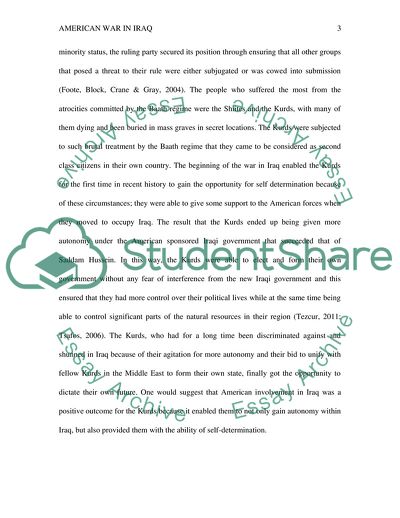Cite this document
(The American War in Iraq Essay Example | Topics and Well Written Essays - 2500 words, n.d.)
The American War in Iraq Essay Example | Topics and Well Written Essays - 2500 words. https://studentshare.org/politics/1831790-the-america-war-in-iraq
The American War in Iraq Essay Example | Topics and Well Written Essays - 2500 words. https://studentshare.org/politics/1831790-the-america-war-in-iraq
(The American War in Iraq Essay Example | Topics and Well Written Essays - 2500 Words)
The American War in Iraq Essay Example | Topics and Well Written Essays - 2500 Words. https://studentshare.org/politics/1831790-the-america-war-in-iraq.
The American War in Iraq Essay Example | Topics and Well Written Essays - 2500 Words. https://studentshare.org/politics/1831790-the-america-war-in-iraq.
“The American War in Iraq Essay Example | Topics and Well Written Essays - 2500 Words”. https://studentshare.org/politics/1831790-the-america-war-in-iraq.


